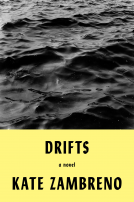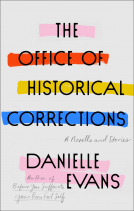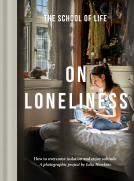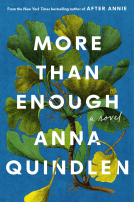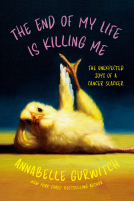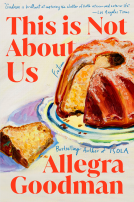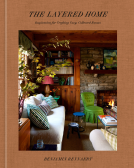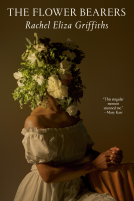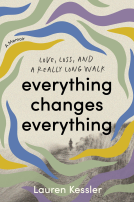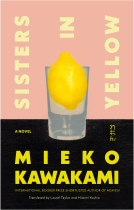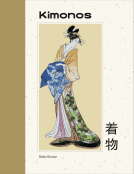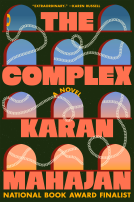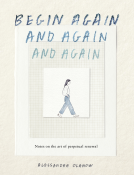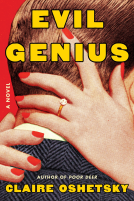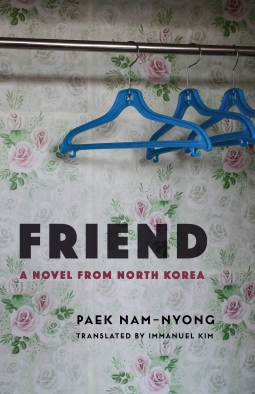
Friend
A Novel from North Korea
by Paek Nam-nyong
This title was previously available on NetGalley and is now archived.
Send NetGalley books directly to your Kindle or Kindle app
1
To read on a Kindle or Kindle app, please add kindle@netgalley.com as an approved email address to receive files in your Amazon account. Click here for step-by-step instructions.
2
Also find your Kindle email address within your Amazon account, and enter it here.
Pub Date May 05 2020 | Archive Date Jun 30 2020
Talking about this book? Use #Friend #NetGalley. More hashtag tips!
Description
Paek Nam-nyong’s Friend is a tale of marital intrigue, abuse, and divorce in North Korea. A woman in her thirties comes to a courthouse petitioning for a divorce. As the judge who hears her statement begins to investigate the case, the story unfolds into a broader consideration of love and marriage. The novel delves into its protagonists’ past, describing how the couple first fell in love and then how their marriage deteriorated over the years. It chronicles the toll their acrimony takes on their son and their careers alongside the story of the judge’s own marital troubles.
A best-seller in North Korea, where Paek continues to live and write, Friend illuminates a side of life in the DPRK that Western readers have never before encountered. Far from being a propagandistic screed in praise of the Great Leader, Friend describes the lives of people who struggle with everyday problems such as marital woes and workplace conflicts. Instead of socialist-realist stock figures, Paek depicts complex characters who wrestle with universal questions of individual identity, the split between public and private selves, the unpredictability of existence, and the never-ending labor of maintaining a relationship. This groundbreaking translation of one of North Korea’s most popular writers offers English-language readers a page-turner full of psychological tension as well as a revealing portrait of a society that is typically seen as closed to the outside world.
Paek Nam-nyong is one of the most renowned writers in North Korea today. He was born in 1949 in Hamhŭng and worked in a steel factory for many years before enrolling at Kim Il Sung University. He worked in the Writer’s Union and later joined the elite group of writers called April 15th Literary Production Unit.
Immanuel Kim is Korea Foundation and Kim-Renaud Associate Professor of Korean Literature and Culture Studies at George Washington University. He is the author of Rewriting Revolution: Women, Sexuality, and Memory in North Korean Fiction (2018).
Weatherhead Books on Asia
A Note From the Publisher
*Please note the author’s last name is Paek, in Korean the familial name comes first, and Columbia has chosen to keep this style.
Advance Praise
“The publication of Immanuel Kim’s painstaking translation of Paek Nam-nyong’s Friend is a significant event. It promises to shift the focus away from those texts that simply confirm our preconceived notions about the DPRK toward a subtler and more informed consideration of literary practices there.”
— Travis Workman, University of Minnesota
Available Editions
| EDITION | Other Format |
| ISBN | 9780231195614 |
| PRICE | $20.00 (USD) |
Average rating from 35 members
Featured Reviews
Friend by Paek Nam-nyong, Translated by Immanuel Kim. The story is set in an idealistic communist country and deals with problems that people are unable to deal with and values that are not found in a capitalist society. The book was enlightening in showing how North Korean people perceive their country. It is a formal style of writing and the characters seemed almost childlike and their actions were often puzzling. However, the book allows an insight into a North Korea that is not shown documentaries or news broadcasts. An interesting read.
Thank you to the publisher, author, and NetGalley for the opportunity to preview the book.
 Paul F, Reviewer
Paul F, Reviewer
”You love Sun Hee the press worker and not the renowned mezzo- soprano of the performing arts company. She has progressed and become a new person. Times have changed, and so must you. Our entire society is actively progressing toward becoming intellectualized in scientific technology and the arts. But you, comrade, have fallen behind.”
‘벗’ by백남룡 has been translated by ‘Friend’ by Immanuel Kim.
The significance of this novel is explained by Kim in a very useful afterword:
”Almost all the North Korean writing we have access to in English translation is by dissidents or defectors.
Friend is unique in the Anglophone publishing landscape in that it is a state-sanctioned novel, written in Korea for North Koreans, by an author in good standing with the regime.
First published in Pyongyang in 1988, the novel was picked up by the South Korean press Sallimteo in 1992, and the French publisher Actes Sud produced a translation by Patrick Maurus in 2011. “
NB: Slightly unhelpfully (particularly for Goodreads cataloguing) the original author’s name has been Romanised as Paek Nam-Nyong here, but as Baek Nam-Ryong in the French (the ㄹ/R becomes a ㄴ/N sound when pronounced, and the B/P choice often splits views)
This novel was published in the late 1980s, when state-sanctioned literary efforts were moving away from literature about revolutionary heroes and towards a focus on more ordinary lives, alongside a ‘hidden heroes’ campaign in the country generally. This was also the period of the Three Revolutions campaign which as Kim explains both motivated the author himself to move to full-time writing, as well (as we shall see) as inspiring this story:
”While he was content with his job at [a] factory, he followed the Party’s Three Revolutions campaign, which called on the people to study political ideology, acquire the latest technical skills, and raise their cultural consciousness through literature, cinema, songs, theater, and collective activities. Paek chose a career in writing to educate his readers on the importance of self- cultivation, which entails lifelong learning, serving the country and the people, abiding by Party doctrine, and participating in collective community initiatives.”
This novel, essentially a psychological domestic drama, is set in 1984. The hidden hero is Judge Jeong Jin Wu, responsible for divorces cases, although his role, as he interprets it, is more that of an investigator and marriage counsellor – working out what has gone wrong and if the marriage can be repaired. Although he is also responsible for other cases, one of which gives a rather interesting insight into 1980s North Korea:
”The director of the City Electricity Distribution Company had designed an electric blanket for personal use and had been using it without permission from the government. This was considered a felony, as the entire country was trying to conserve energy. He was not an ordinary citizen, but the director of the very institution whose priority was the conservation of energy. For this reason, he was going to receive a severe sentence.”
He is approached by a couple, coming up to their 10th anniversary but seeking a divorce: Chae Sun Hee, a skilled lathe operator, and Lee Seok Chun, who started herself as a factory worker but has since found fame as the lead mezzo-soprano of a performing group. They first meet when Seok-Chun is a seconded worker at the rural factory where she works, and, for him, it is love at first friction press:
"Amid the noise of all the running machines, Seok Chun was able to distinguish the sound of the friction press that Sun Hee operated. He could see drops of sweat rolling down her forehead, around her lustrous eyes, and down her white cheeks as she arduously worked the press. Such images of Sun Hee occupied Seok Chun’s thoughts and enlivened his soul."
And the retrospectively told tale of their initial romance rather romanticises the factory floor. Indeed when Sun Hee initially rebuts his over-hasty declaration of affections, he decides to move back to his hometown, but it is loyalty to his workplace that keeps him there:
”He had determined to forget about Sun Hee, but he deeply wanted his feelings for her to persist. He regretted his foolish behavior of the night before, when his words, which he had intended to use to express his love for her, had instead been cynical, deriving from his frustration and embarrassment. Yet he loved her, he still desired her. He felt that he had neither the strength nor the courage to control his emotions. He decided to leave at dawn without anyone knowing, without a word, while the villagers were still asleep. He thought that if he left, his love for Sun Hee would subside, gradually fading into oblivion, and then his troubled heart would be able to find solace and regain its peace in solitude.
Yet he could not forget the factory, to which he had grown attached. He did not want to leave because of Sun Hee. His heart would not find peace in an abrupt departure. He tried to convince himself that if he spent his energy solely on working on the lathe and living among the noble factory workers and adopting their humble lifestyle, then thoughts of Sun Hee, his love for her and everything that concerned her very existence would fade away. Seok Chun could never forget the lathe work that had become a part of his identity along with the smell of greased steel, the sharp steel rods, the admirable workers and their quiet ambitions, and the humorous stories the factory workers told. These were the elements that shaped his life, that gave passion to his creativity and aspirations.”
But as they settle down to married life, and as Sun Hee’s career soars, her frustration with her husband largely stems from his unwillingness to progress. While a talented amateur inventor, he refuses to go to college and instead works on self-designed solutions, which typically take years to perfect. As the Judge also admonishes him:
"If you had listened to your wife and gone to the Engineering College, then you would be a technician by now and would not have wasted all those years trying to figure out the complex engineering components of your invention"
My description makes this all sound rather earnest, almost comically so, and to an extent it is. But the author’s literary reputation is well deserved – his prose, in Kim’s translation, can turn to the lyrical such as this riff on the weather:
”From whence, from whom, for what reason was the wind running, like a fugitive, like someone who has abandoned his family? Who will ever know its point of departure, who will ever know its lonesome fate? It wanders the earth aimlessly, seeking refuge among the trees in the depths of a forest or by a river in an open meadow. It dashes by without looking back, or it lurks around a single spot. At times, it affectionately embraces life, sharing warmth and love with everything near and far. At other times, it bellows with rage and devours every thing in sight with a destructive force that makes the earth shudder. It gets soaked in the cold rain and freezes in the icy blizzard. It moans in agony and howls into the lonely night. But then, on a quiet day, it wakes from the warmth of the sun and embarks on its journey yet again, looking forward to the promise of a new day, a new adventure. This is why it can never find a mate and, therefore, lives a most miserable life.”
And amidst the paeans to industrial progress and the exhortations to cultural and education progress, this is a very human story of a troubled married couple and their son, and the novel, while ending on a hopeful note, avoids an easy resolution.
A fascinating insight into an otherwise closed society and literary culture.
Thanks to the publisher and Netgalley for the ARC.
 Abby S, Reviewer
Abby S, Reviewer
A compelling look at a couple in North Korea seeking a divorce.A country we know little of.We are introducec to a woman begging the judge to be allowed to divorce her husband a man she can no longer live with.
The author then shares with us their meeting their relationship the abuse. The author is a bestselling storyteller.I was drawn in to the story the culture the sadness.Found this a fascinating story a window into lives in North Korea.#netgalley#columbiaupress
 kangsoon p, Reviewer
kangsoon p, Reviewer
Paek Nam-Nyong (백남룡)의 "Friend (벗)" is my first North Korean novel written by a North Korean. I have read short stories of North Korean writers in 1950s and 1960s who were active writers in occupied Korea and chose communism over capitalism after the end of the Japanese Occupation. Unlike many earlier or post-war South Korean short stories filled with the sorrow and pain, these stories inspired by the newly built communist country were filled with energy and optimism, though I found too much "educational" to my liking.
However, "Friend" took me by surprise as it delves into a deeply personal matter of divorce. Chae Sun Hee, an established singer, wants to get a divorce from Lee Seok Chun, a veteran lathe machine worker after 10 years of marriage with a son named Ho Nam. The desire to get a divorce is mutual but Judge Jeong Jin Wu, whose wife is mainly absent from home due to her pursuit of agricultural research in a remote area, wants to know the details of their married life. Then, he gets a call from Chae Rim, a cousin of Sun Hee, urging a quick divorce but the name reminds the Judge of a couple to whom he granted a divorce 6 years ago, which somehow bothers him.
The book is surprisingly entertaining and characters' emotions are realistically captured. The beauty of the nature reflecting human emotions is also skillfully depicted.
Though capturing emotional struggles of married couples, the book, published in 1988 when North Korea was still optimistic about their future, contains the meta narrative of Juche. One of the Juche movement was the Three Revolution Team Movement in 1973, which stresses ideological, technical and cultural movements. Three main characters symbolize these three aspects; Sun Hee as cultural, Seok Chun as technical and Jin Wu as ideological. All their actions are measured according to each one's "national duty" that includes "the duty to progress and advance in his social position" and "the duty of the law lay in restoring dysfunctional families."
In spite of these inevitable State-guided themes, "Friend" is still quite an enjoyable book.
(Thank you for the advance copy of this book, NetGalley and Columbia University Press!)
 John L, Reviewer
John L, Reviewer
North Korea brought me here, and the idea that this was a novel made in North Korea for North Koreans, and not specifically for an export market. A divorce judge is petitioned for the right to divorce in the courts by a woman, who is quickly followed by her husband who also says permanent separation is the only thing. Ex-colleagues in an industrial plant, she's now a well-liked singer, perhaps with ideas above her station as a result, while he is – in her mind – a slovenly bloke stuck in a rut, forever having to pay recompense for failed inventions at work. So why is the judge dithering about just stamping the papers and moving on to some other people? After all, his own relationship isn't quite as rosy as he once assumed it would always be. But a coincidence over names, and a third party trying to lean on him to get the divorce settled, remind him of due diligence in procedure, and of at least one time when granting a divorce might not have been the best thing for everyone in the family concerned…
This ultimately read a little like a lightweight copy of something like "The Children's Act" – judge debates their own morals and what they're going through at the same time, when a simple yes/no decision seemed the obvious thing. Set in the mid 1980s, there's not much that does make it strictly North Korean – yes, there is obvious talk about electricity being the vital thing that must be saved, and of unions and labour and the benefit of the state, and there is strict workplace etiquette to follow, but it doesn't try and convey the state of the nation, but concentrate on this insular case. The etiquette comes out in the narration too when we so often get everyone's name in full form (very seldom does the judge's name and title not appear in full on each page), and a lot of the writing seems somewhat naive, telling not showing, and in going into minutiae over the judge's graduation papers being quite skippable. Finally the ending is too pat and tidy, and yet overlong about it. Still, it's a rare chance to see a book such as this, and not one to immediately be passed over. Three and a half stars.
 Danielle M, Reviewer
Danielle M, Reviewer
I would recommend this book to the Western reader who wants a change of pace. Those looking for a hero's journey or plot that follows the witch's hat schematic taught in elementary school will probably find themselves disappointed because this book is an exceptionally deliberate and slowly paced novel.
Judge Jeong Jin Wu finds himself looking into a divorce petition. This is basically the plot. As he looks into things, he contemplates the marriages of others and the meaning of love and the ties that bind. Much of the action in the book is filtered through Jeong Jin Wu's eyes. Western audiences may not understand why a civil servant has gotten so involved in client's lives.; they may also bristle at the adult client's inability to ameliorate their situations and act like adults and not petulant children. Because the characters that occupy the judge's time are often depicted as self-centered, negligent, and aloof (sometimes even Jeong Jin Wu), it was hard to invest in this novel and these characters.
The afterword of Friend was most insightful. The novel is unique because most North Korean literature available in English is by dissidents but Friend is a state-sanctioned novel, written for North Koreans, by an author in good relationship with the regime. Friend was first published in Pyongyang in 1988, then picked up by the South Korean press Sallimteo in 1992, and the French publisher Actes Sud produced a translation by Patrick Maurus in 2011.
Chae Sun Hee, an established singer, wants to get a divorce from Lee Seok Chun, a veteran lathe machine worker who works in a factory. She has been married for 10 years and they have a son named Ho Nam. The protagonist of the novel is Judge Jeong Jin Wu who grants divorces but also acts as an investigator to see if a divorce case presented before him can be avoided and the marriage saved. His own wife, is mainly absent from home and pursues agricultural research in a remote area. The Judge gets a call from Chae Rim, a cousin of Sun Hee, urging a quick divorce but the name reminds him of a couple to whom he granted a divorce 6 years ago, which somehow bothers him.
State sanctioned novels have to fulfill certain obligations (as mentioned in the afterword). There should be a moral to the story; there should be enough to elevate the thinking and intellectual questioning of the readers. Hence, at times the novel falls into the constricted mould of revolving around myriad 'acceptable duties of a model person' — responsibility of citizens towards the state, the various aspects of sacrifice and adjustment in a marriage, empowering co-workers, higher education to better one's skills. That said, the novel is fairly progressive in the aspects of women's life — pursuing a career, choosing passion over staying in the same house as the partner after marriage and balancing career and domestic life. It also encourages, through the characters, to keep bettering oneself, acquiring knowledge and serving the society (and thereby the state). The novel also explores family as a unit, balancing family and the work-related community, corruption hindering the progress of the working class (and having widespread effects on their domestic life as well) and the effect of a divorce on the children involved in the marriage. There is enough to sink your teeth into and meditate about life, marriage and domestic and social responsibilities of citizens.
I enjoyed reading this from an anthropological point of view, it wasn't a literary marvel in the same sense as a well-written western classic, but it was riveting nonetheless. The story is about a North Korean judge named Jeong Jin Wu, who evaluates and advocates for divorcing couples in varying circumstances, conscientiously deals with his own marital strife and also toes the rigid party line along the way. The married couples he works with have fascinating stories, that probably wouldn't be half as compelling if they were South Korean or western, it's the element of unrecognized brainwashed zombieness that make them so brilliant.
The degree of sexism displayed is disheartening to say the least. That hitting ones wife shows a firm sense of principle? "...as man entered the feudal era, a married woman was considered the property of a man and was forced to be submissive to her husband. This allowed women to develop an awareness of their human emotions and human rights that was beneficial to them." wtf?
The child-like earnest naivete of these people, the oh so foreign ways they flirt, and cuss, and take their work and party so seriously, the kindergarten-aged boy fondling his mom's breast. This must have been so difficult to translate.
 B. M, Reviewer
B. M, Reviewer
From the afterword of Friend by Paek Nam-nyong:
"Friend is unique in the Anglophone publishing landscape in that it is a state-sanctioned novel, written in Korea for North Koreans, by an author in good standing with the regime."
By reading that sentence, one can already form assumptions about this book. The afterword also informs us that most books that come from North Korea are written by dissidents and are highly political, so Paek's book is supposed to be important because it's different: it's a domestic drama. I disagree. Friend is extremely political. Here's a few lines from the first chapter of this novel:
"Many people in the city neither knew the location of the Superior Court nor knew of its existence. Those who abided by the law or lived in a harmonious family had no reason to come here."
What a disheartening paragraph. Also, these lines that are nothing but straight-up propaganda:
"She possessed the secret riches of humility, gentleness, and virtue that won the respect of her colleagues, students, community members, and husband. She was a pure, dignified, and honest woman who valued the worth of her students and the nobility of her occupation. She understood that sacrificing her life for the students of this generation was fulfilling not merely her duty as a schoolteacher but her destiny. Her love for the nation and her compassionate spirit for the people were admirable qualities..."
I mean, lmao. This book is like one big propaganda that puts Kim Il-sung in a good light, disguised as a Jane Austen novel, but hardly fooling anyone. At least I'm not. But that's not why I gave the book one star; the poor writing and two-dimensional characters are responsible for that.
 Reviewer 627729
Reviewer 627729
This was an interesting read.... it gives you pretty good insight into how North Koreans view things. The writing was first class but average at best. Reading this just show me clarity as to why freedom is so important. There’s is some sexism in this book. Which opens my eyes to the fact things like equal pay and equality are in no way as serious of an issue as the fact in communist and socialist countries women are beaten and that’s suppose to be ok?
 John A, Reviewer
John A, Reviewer
Before writing this book, Paek made a study of divorcing couples while he was working at the Jagang Province Writers’ Union. The local court dealing with divorces was in the same building.
The book opens as Judge Jeong Jin Wu is being handed a divorce petition by a trembling woman in a court office in a provincial North Korean town. He has specialised in divorce cases and seems to get very much involved in them. He knows this woman – Sun Hee – by repute, as she is a well-known singer, the lead mezzo-soprano for the Provincial Performing Arts Company. He has seen her perform.
Seok Chun and I have not been on good terms. It’s been like this for several years. I can’t live with him anymore! There is simply no way! We were not meant to be she says.
As a judge, he feels it is duty to find out more and learns that her husband works in a machine factory as a lathe operator, he brings home no money, however, as when he was experimenting on developing a new type of lathe, he damaged some of the factory’s equipment and feels it his duty to pay the money back. She wants to be granted a divorce at once but the judge says he needs to hear both sides and investigate further. Even when he receives a call from the chairman of the commission board urging him to grant the divorce, he says the same thing.
While we will learn more about this case, we also learn about the chairman of the commission board who divorced his wife because he had done well and she was still a country bumpkin. We also learn about the judge’s marriage, which is far from harmonious. Finally, we learn about the marriage of his two neighbours, she a teacher, he an alcoholic coal miner.
Judge Jeong is the key player here. He meets, both separately and together, Sun Hee and Seok Chun, as well as their seven-year old son, Ho Nam. Indeed, at least by Western standards, he goes way beyond the call of duty in establishing what is behind the fact that both husband and wife seem to want a divorce. She feels that he is too devoted to his job and his invention and will not make any attempt at advancement, for example by formally studying engineering or by dressing nicely, while he feels that his contribution – improving the the efficiency of North Korean industry – is superior to that of a mere singer, however good she is and however much she is admired.
At the same time, the judge examines his own marriage. His wife, Eun Ok, is a biologist and is aiming to develop vegetable species that will grow in the mountainous area where she comes from. As a result, she spends lot of time there, leaving him to fend for himself. As for his neighbour, she is a teacher and has devoted herself to her pupils. Her husband is an alcoholic and he knows that this upsets his wife and keeps promising to give it up but never does. Judge Jeong tries to help out here.
Finally there is Chae Rim, the chairman of the commission board. He tries to intervene in Sun Hee’s divorce, as he is related to her. However, Judge Jeong remembers how badly he treated his wife and discovers how his son is now suffering, and is determined to get him. Inevitably, he finds some dirty deeds (on what seems to us scant evidence). Chae Rim is clearly the bad guy but, as this is a North Korean novel, instead of calling in lawyers as a Western crook like him would have done, he accepts his guilt and punishment.
It is an interesting story, even if, to a Westerner, it seems a bit naive and black and white. Judge Jeong goes way beyond the call of duty to resolve the various issues. Some might say he is interfering. Equally, their standards, often laudable, may seem a bit odd to us. For example He who diligently carries out the Party’s directives is the true bearer of noble consciousness and character.
The role of women is very much part of the novel. We see most women working. Indeed, the lathe factory seems to have quite a few women doing technical jobs. Despite this, the men expect their wife to do the traditional housewife chores, such as cooking and laundry and complain when they are not available to do them
What is, of course interesting, is that this book is written by a North Korean writer who is not a dissident or enemy of the people, but someone very much part of the system and who has Party approval. Clearly, he has to paint the righteous workers succeeding and following the correct path, which he does. At the same time, the individuals are not all stereotypes and have their flaws and concerns and do not always behave the way they should. The book does admit on more than one occasion that there are workers who are slackers and, of course, the teacher’s husband is an alcoholic. It is not a great work of literature but certainly interesting to read about a country few of us are every likely to visit.
 Melanie M, Reviewer
Melanie M, Reviewer
As a German, it's hard to read a book by a North Korean author without making comparisons to the GDR/FRG situation. And yes, there were things that did remind me a lot of the "societal fiction" from the GDR that I read whilst growing up in the FRG: The praising of the common good, the metaphors for loyalty to the state, the good power above looking out for the striving people below... all of this is very familiar.
The book was originally published in the 1980ies and centres around a judge who is approached by a former factory worker, now mezzo-soprano in theatre, to initiate her divorce from her factory worker husband. The judge, like the good father, the patron, the person who knows best, wants to understand their relationship and gets very involved in Sun Hee's and Seok Chun's life and befriends their young son as well.
On the one-hand the patronising of the woman who - in my opinion - should get a divorce instantly paired with the promotion of women's right - and obligation - to work outside the home, to have a career even to excel and be better at what they do than their husband written by a male author was a fascinating mix and something, I have not really read in this way before. The judge and society believes that Sun Hee should be with her husband to bring him up-to-date with progress and to make him valuable for the common good of society, so she should be ok with being beaten occasionally and verbally abused. Yet, at the same time, we are introduced into her struggle of combining career and motherhood in a way I have rarely seen in novels written by men, her right to progress - even if it is more for the common good than her own - is never questioned. And she is not the only female character who has a career that takes her out of the home, the judge's wife, too, has a rewarding career as a scientist, a crucial job working on North Korea's food security.
I cannot say that I loved this novel, the underlying propaganda, the heavy metaphors for the common good, the socialist state, being valuable, the praise of hard work and loyalty... well, I just cannot really look beyond that. Yet, there is no doubt that Paek Nam-Nyong could write, even though it feels often very odd and offputting, at times, he did win me over with an observation, a sentence or a thought. Overall, though this was more an interesting book, something you read with an explorer's mind rather than a reader's mind.
 Lilian N, Reviewer
Lilian N, Reviewer
A woman in her thirties goes to the courthouse to file for a divorce, She meets an eccentric judge who investigates her case. Paek examines love, marriage and divorce in North Korea in the 198s through . the lives of the main couple as well as the Judge who is also undergoing his fair share of marital problems. Through a series of flashbacks, monologues and various media, the author examines how a couple gets together, how marriages deteriorate and possible ways to remedy the situation.
Friend is written within the broader political context of the North Korean nation which largely viewed one's public life as a reflection of their private life. It was interesting to note that everybody in society (work colleagues and supervisors) had a say in an institution that was primarily supposed to be between two people. The author does a commendable job in addressing the inner struggles of the characters in the marital context as well as a part of society. Readers will appreciate the afterword in the book that provides insightful information about life in North Korea.
Though first published in 1988, Friend provides a glimpse into the married lives of everyday North Koreans and is a great conversation starter.
E-ARC received via Net Galley in exchange for an honest review :)
I really enjoyed this book. It read as literary fiction and followed a married couple seeking a divorce and the judge presiding over their case. We also caught little snapshots of other peoples lives and relationships as they interacted with the three main protagonists.
What makes this book so interesting and unique is its normalcy - which sounds weird but let me explain. Most of the literature I've seen in English from North Korea is on the axis of extreme - from western propaganda to dissentients' stories of violence. This story isn't near either of those extremes, its a beautifully written fiction about relationship problems and within that story it presents a picture of daily life for a regular family with the backdrop of living in North Korea.
Not only did I enjoy reading this book but I learnt a lot and it really made me confront a lot of my assumptions about North Korea based on western media depictions.
The afterword of the book is particularly insightful also and explains how literature is produced in North Korea and then about the author and how this work was translated which was super interesting.
I would recommend this book to people who like literary fiction and contemporaries revolving around family units, I really recommend this book to people who don't know much about North Korea and are looking to learn something that might challenge their assumptions. I hope more of Paek Nam-Nyong's work, and other North Korean novels are translated into English.
 Mandy J, Reviewer
Mandy J, Reviewer
It is easy to forget, or perhaps not even think about in the first place, that North Korea produces fiction for its citizens just as any other country does, and that North Koreans enjoy novels and other fiction just as readers elsewhere do. As I understand it, fiction was almost wholly propagandistic in the past but recently constraints have relaxed and a more recognisable, according to western standards, fiction has been allowed, and this novel Friend is one such. It was a best-seller when it was published in 1988 and remains popular, so much so that it has been adapted for a television series. However North Korean literature for internal consumption is not normally made available outside the country, which makes this new translation into English even more exciting. Four years after its original publication it was republished in South Korea, and then translated into French in 2011. And now we have an English translation, the first time a state-approved novel has been available in the US. Even with the relaxations North Korean literature still has a role to play in propaganda for the people, and that’s not completely missing here, but it doesn’t dominate the narrative or make it any less readable.
It’s the story of a conscientious and well-meaning judge, the friend of the title, Jeong Jin-wu, whose role doesn’t see him confined to the courtroom but also finds him acting as a sort of counsellor or social worker. One day a young woman, Chae Sun-hee, a professional singer, comes to him to ask for a divorce. Rather than just apply the law and grant her what she wants, Jeong Jin-wu feels it incumbent on himself to look into the family’s circumstances to judge whether a divorce is in the family’s best interest, especially as there is a child involved. As he investigates, the reader is given a picture of North Korean society, the personal struggles of the people, their daily life, the problems and dilemmas they face, and how they sometimes fail to live up to the expectations of their family, their community or indeed their country. Issues of domestic conflict, the role of men and women in the home and the workplace, female ambition, career versus domestic roles, the responsibility for bringing up children, pressures of the work-place – all these issues are examined with empathy and insight and with a remarkable lack of didacticism and preaching the party line. At its heart this is very much about the institution and the sanctity of marriage, a cautionary tale about the damage divorce can do to children. We also meet a number of secondary characters who demonstrate other facets of North Korean society, and surprisingly the novel doesn’t flinch from exposing some of the fault lines in the country, such as the shortage of electricity, the prevalence of corruption and even embezzlement. All in all I found this a fascinating novel, a rare glimpse into everyday North Korean society and a timely reminder that people are people everywhere, regardless of the type of government they have.
This is essential reading for anyone interested in North Korea, but it also stands up as an enjoyable novel quite apart from any special interest in or prior knowledge of the country and its society.
 Morgan S, Reviewer
Morgan S, Reviewer
I received an advanced readers copy in exchange for an honest review
What a weird wonderful little book. Hardly comfort in reading, but enjoyable for it’s own sake. . I’m grateful to NetGalley for exposing this little pebble of a novel to me.
I’m judging a 2020 fiction contest. It’d be generous to call what I’m doing upon my first cursory glance—reading. I also don’t take this task lightly. As a fellow writer and lover of words and books, I took this position—in hopes of being a good literary citizen. My heart aches for all the writers who have a debut at this time. What I can share now is the thing that held my attention and got this book from the perspective pile into the read further pile.
Really interesting discourse taking place here, a quiet domestic novel that takes place in North Korea. I don't think I've read anything like it. It's political and feminist in its subtle invasiveness.
I wonder what, if anything is lost in translation, you can tell by the language that perhaps the original intention of the sentences were perhaps more lyrical that depicted here. Either way, I'm excited by this narrative, the political work that is being done, is within a marriage, where much of our most intimate conflicts occur.
 Barbara L, Reviewer
Barbara L, Reviewer
'Friend' is a very strange book, quite unlike any other I have read.
Perhaps that's to be expected. I've never read a North Korean, government-approved, sort-of love story before so not surprisingly it's strange. I have read a LOT of books by North Koreans who have escaped their country but no novels and no books that were widely read and loved by native North Koreans. The book was released in the late 1980s as an example to locals about how they should behave in their marriages and is - apparently - still very popular today. The timing means it predates the North Korean famine of the 1990s and so lacks the usual fixation on starvation and finding food that's characteristic of later dissident novels. In this time, there's still plenty of food to go around. Also, there's not one signal mention of the Kims - the Supreme Leader or his son the Dear Leader do not put in an appearance at all.
There's a lot of pontificating and criticising people for their behaviour and their attitudes (something widely reported in dissident accounts of N. Korea) and lots of wholesome advice about putting the good of others - your family, your factory, your community and of course your country ahead of your own needs. I felt I was being preached at, but I wasn't always clear what the key messages were.
A judge receives a visit from an attractive young woman who wants a divorce and, rather than just process the request, he takes it on himself to investigate the marriage, get to know the couple and their young son, and basically interfere way too much in their relationship. The couple had a love marriage (not always the case in Korea) as did the judge. His own marriage isn't easy; his wife is an agricultural scientist who spends most of her time away in the mountains with her vegetable plants, leaving him to look after himself and her seedlings. At times you wonder what right this man has to judge others when his own affairs are so complicated. He tracks the woman's husband to his factory to learn more about him. On one occasion, he takes their son to his home after finding him outside the family home, cold and wet. I couldn't help thinking in today's Europe you'd probably get locked up for abducting a child and giving him a bath without any consent from his parents. At one point the judge goes to a river, wades in and fills his backpack with sand for the boy's father - seriously weird behaviour.
The wife has risen above her humble origins to become a singer and rather looks down on her factory-worker husband, even though the guy is a genius at inventing clever machines. She gets criticised for her haughtiness and superiority. He gets criticised for his obsession with engineering and for refusing to better himself through education. Basically everybody gets criticised a lot and regardless of whether they are too humble or too haughty, the judge has some cutting character assassination to dish out. All the while, he thinks he's doing what a 'friend' should do.
The messages are very odd and very complex. I can't really say that by the end I really understood whether the judge had done good or not, but I saw clearly that it was exceedingly hard in 1980s North Korea to ever get anything right.
It's well worth a read for its strangeness and otherworldliness. But I'm not entirely sure I could say that I 'enjoyed' it. I feel like I went on an interesting literary journey and experienced something worthwhile but I'm not sure I'd choose to do it again.
Oh, dear! I'm not surprised that Faith Martin chose to use a pen name for 'An Oxford Revenge'. I can't imagine it did anything positive for her reputation as a writer of mysteries and whodunits.
Davina is a beautiful and passionate woman, allegedly so good at poetry that she is introduced to the staff and students at St Bede's College, Oxford as "recently ....shortlisted for the Nobel Prize for Literature". Let'stake a moment to consider the ridiculousness of that, shall we? The Nobel Prize is given for an author's life work. The youngest writer ever to get the prize was Rudyard Kipling in his 40s and most winners are decades older. So what? Well, it sets the scene for just how silly this book is likely to get.
As I was saying, famous feminist poet, Davina has finagled her way into a one-term post at St Bede's, the college where her younger step-brother David was so unhappy that he killed himself, pinning the blame on his English tutor, Gareth Lacey. Davina's mission is to destroy the man who destroyed her step-brother but she hasn't factored in that Lacey is basically sex-on-legs - a sort of intellectual Poldark who turns her brains to jelly and her innards to water. Despite wanting revenge and plotting to destroy him, she's out of her undies quicker than you can say "Excuse me". Now, I'm not unwilling to believe in animal magnetism and fierce attraction, but this requires a degree of suspended belief that goes well beyond my capabilities.
"The hot moistness between her legs felt like fire. Her nipples, pressed against his dark blue jacket, suddenly stiffened with sensitivity, growing harder with every minute movement he made".
Seriously, pass me the application for the Bad Sex Awards. It's all horribly squelchy and completely ignores that she's supposed to hate him. And even when she's 'in love', it doesn't stop her carrying out her fiendish plans for revenge.
There is a nicer, gentler love story running in parallel between some students who are putting on a play. That's less squelchy but still requires you to take on a Jane Austen-like plotline about stately homes and inheritance scams.
I guess my second biggest question would be "Where's the mystery?" and my biggest question "WHY did you do it Faith?"
I received a free ARC from Netgalley in return for an honest review.
 Gehad M, Reviewer
Gehad M, Reviewer
This is my first experience with North Korean literature. As a translator, I was mesmerized by how fine and sentimental the translation is and kept thinking how good could the original text be for the translation to be that beautiful!
The novel talks about a couple going through a divorce and how the progress of one of them affected their life. The writer described the development of the couple's relationship in a delicate way. He also talked about other relationships briefly. However, at some point, I started to feel the North Korean ideologies taking over. In fact I was not surprised as I read the translator's interview with the writer in 2016. Park Nam Nyong is a bit committed to the idea of citizenship and the society. He kind of idolizes the leadership and writes to promote their principles. You could feel the Judge was his representation of a model citizen who must serve his country and people.
The first part and how delicate and sentimental his description of relationships is made me think of giving it 5 stars, but the rest of the novel reduced my rating to 3. I liked it.
Thank you netgalley for giving me an arc in exchange for an honest review.
The significance of Friend can be summed up from a section of the afterword:
"Friend is unique in the Anglophone publishing landscape in that it is a state-sanctioned novel, written in Korea for North Koreans, by an author in good standing with the regime."
At it's core this book is a psychological domestic drama, but the propaganda within it (loyalty to the state, hard work for the common good etc.), is heavy-handed. But I found the inside look into the lives of a divorce lawyer and the family seeking a divorce to be incredibly interesting. Paek Nam Nyong explores the idea of what marriage means, what people owe themselves when it comes to their own happiness, and how to be a friend.
Overall, I found this book to be extremely engaging and informative.
I received this free copy in exchange for an honest review here on Netgalley.
This was a very hard to book to complete for me. Maybe it was because of the cultural clash, maybe because my views are too western to be reflected in what the story was about but overall i felt quite disconnected despite me actively trying to understand and comprehend the background of it all.
 Victoria C, Reviewer
Victoria C, Reviewer
Characters felt two dimensional. Written in a formal style with the characters seemingly childlike and their actions are often puzzling. The book was enlightening in showing how North Korean people regard their country and its ideals. The story allows an insight into a North Korea that is not shown in documentaries or news broadcasts. An interesting read. The publishing of this book feels dangerous, like it's making us ignore all the horrible stuff that's going on in North Korea. It's obviously propaganda within North Korea but also the purpose of being published is also interesting.
#Friend is by Author #Paek Nam-nyong, and Translated by #Immanuel Kim. This is a nonfiction debut of one China’s most highly respected writers.This is a vivid portrait of rural China in the 1960s and 70s chronicling his childhood and festival days. A career in the Army allows him to escape village life. And the reader experiences more of the cultural revolution.
Thank you,
#Netgalley, #Paek Nam-nyong and #Grove Atlantic
 Reviewer 329115
Reviewer 329115
See a June 20, 2020, online “in-store appearance” by translator Immanuel Kim at the website of Washington, D.C., bookstore “Politics & Prose” here,
https://www.politics-prose.com/video/paek-nam-nyongs-friend-immanuel-kim
or at P&P's YouTube channel here.
https://www.youtube.com/watch?v=wHspcgSuJfs
I found it interesting.
I watched this event stream live. At one point in the proceedings, Kim gives a shout-out to the support he got from publisher Columbia University Press in the preparation of this book. I said to myself, “Hmm, Columbia University Press is one of those generous establishments who gives reviewers free electronic advance copies via Netgalley.” I navigated over there and scored a free copy. Thanks to all.
If you don't watch the author appearance linked to above, I recommended that you start reading this book with the translator afterword. It gives helpful context. Readers of this Goodreads page probably know already that this is possibly the first state-approved novel from the Hermit Kingdom to be translated and published in English. The afterward fills in additional detail that I found helpful to keep in mind while reading, e.g., at the time, the officially-approved literature was moving away from heroic manual laborers toward heroes who improve themselves through education.
Remember, this novel was published in North Korea in 1988. At that time, the Soviet Union's generous subsidies had just been reduced, and the subsequent economic hardships were not yet being rippled through the economy, so life was comparatively prosperous and normal. Since them, there were (and are) Western sanctions against the regime. Life's probably much harder now.
Even if life was easier for North Korean then compared to now, sometimes the mask of normalcy that the novel attempts to portray slips a little and you get an idea about how different (meaning, lower) the quality of life was. For example, early on in the novel, some characters attend a evening concert. When the concert is over, people leave the concert hall and reach for the flashlights they have in the purses or overcoats – because of course the street lights are few and far between. Later on in the book, the female protagonist (who is a singing celebrity in North Korea) decides to do some laundry and – instead of using a washing machine, or even handwashing in the sink – has to go down to this nearby river and stand in the freezing water to launder her family's clothes. No one, including the author, remarks on this or considers it in the least bit odd.
You can tell a man wrote this. Each of the two families who are at the center of this novel, the man selflessly takes on the tasks of cleaning and child-rearing while the wife thoughtlessly goes off to concentrate on her career. This state of affairs occurs in real life, I guess, but certainly not as frequently as it does in novels written by men – whether they write in North Korea or not.
Similarly, it is briefly mentioned that, in one of the two families, the husband has on occasion verbally and physically abused the wife, but it's treated like no big deal.
There's also some obligatory stuff about how wonderful and wise the party's leadership is, but it's pretty easy to skim through these parts. Also, a Communist Party apparatchik is caught red-handed stealing, and immediately breaks down to the investigator and repents, which is completely laughable. In real life, the apparatchik would have sent a message to the investigator by having the investigator's school-aged child beaten within an inch of his life. These guys don't get their positions by being push-overs.
Still, I enjoyed reading this, because it's a little window, no matter how foggy, onto a place which we can't really know otherwise. Also, it's a good easy read, a tribute to both the original author and the translator. Worth a look.
Readers who liked this book also liked:
Annabelle Gurwitch
Biographies & Memoirs, Health, Mind & Body, Humor & Satire
Benjamin Reynaert
Arts & Photography, Home & Garden, Reference
Alessandra Olanow
Arts & Photography, Religion & Spirituality, Self-Help
